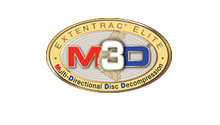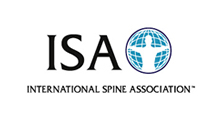
Spinecare Topics
The Back and Sleep
Tips for a Good Night’s Sleep
1. Sleep on a supportive and adequately firm mattress.
2. Avoid sleeping on your stomach whenever possible. Try to sleep on your side or back to achieve greater support of the spine.
3. When lying on your side, place a pillow between the knees to reduce rotational stress and low back muscular tension.
4. Develop a stable sleep cycle. This requires picking a good time to go to bed and get up every day. The sleep cycle influences biochemistry and tissue recovery.
5. Avoid prolonged naps. Excessive napping throughout the day may reduce the efficiency of restorative sleep at night.
6. Avoid caffeinated foods and beverages in the late afternoon or evening. Caffeine use later in the day can reduce the amount of restorative sleep throughout the night. Caffeine has been known to interfere with the natural progression through stages of sleep required for optimum tissue recovery.
7. Get regular exercise. One of the best promoters of a good night’s sleep is regular exercise. Avoid exercising just before going to sleep, as this will stimulate an arousal mechanism leading to decreased quality of sleep.
8. Stop smoking. Nicotine, like caffeine, is a stimulant. Nicotine also is associated with increased risk for inflammatory joint disorders and degenerative disc disease. Smoking depletes vitamin C and oxygen; both are needed for connective tissue repair.
9. Take a warm bath or shower before bedtime. Warm water relaxes muscles helping to reduce low back pain and increase flexibility.
10. If you can’t sleep, get up. If you don’t fall asleep in about 30 minutes, it is better to get up and do something for 30 minutes and try to go back to sleep again.
1 2 3
















